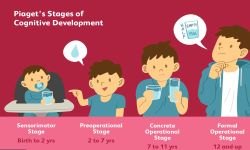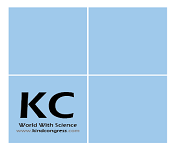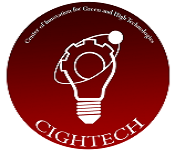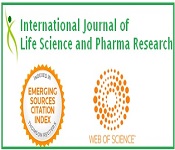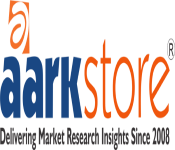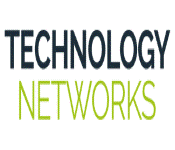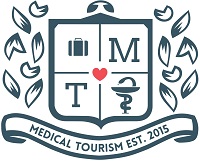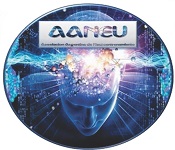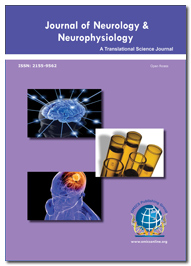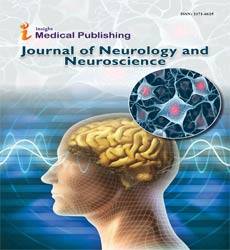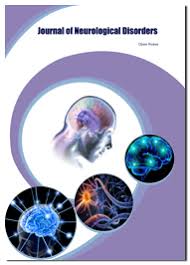Theme: Scientific Gathering to Unleash the New Horizons in Neurocognitive Study
Neurocognitive 2019
Join us for 26th Cognitive Neuroscience Congress
Update your skills, enhance your knowledge base, and broaden your horizons—all in one place!
Cognitive Neuroscience, Neurology, Neurological Disorders, Epilepsy, Dementia, Alzheimer Diseases, Psychiatry, Brain Disorders, Stroke, Neurodevelopmental Disorders, Neurodegenerative Diseases, Cognitive Neuroscience Conference, Neuroscience Events, Memory, Neuro Imaging, Central Nervous Systems
Date: December 09-10, 2019
Venue: Dubai, UAE
We extend the heartiest welcome at the “26th Cognitive Neuroscience Congress” on December 09-10, 2019 at Dubai, UAE, revolving around the theme “Scientific gathering to unleash the new horizons in the neurocognitive study”. This conference invites all the participants around the globe to share a platform and in order to convey their insights and recent developments in the field of Cognition and Neuroscience.
Why attend?
Neurocognitive 2019 Congress itself is an idiosyncratic discussion to inspire the new approaches and put together to unite recognized scholastics, related to neurobiology, Cognition, in-field specialists, Psychiatrists, Public well-being specialists, researchers, Scholarly researchers, trade specialists analyzers to trade concerning the newest research and innovations. The point to arrange this conference is to offer a stage to academicians and specialists with a wide spectrum of disciplines to dialogue and deliberate on a social modification that is encompassed by innovation and technology. This helps to gain more knowledge in a particular field that motivates to do new more researches in a specific area of interest for researchers and students.
Target Audience for Cognitive Neuroscience 2019
-
Neurologists
-
Neurobiologist
-
Neurological surgeon
-
Neuropathologist
-
Neuro pshycologist
-
Neuro-physiotherapists
-
Neuro-radiologists
-
Neuro-ophthalmologists
-
Neuroscience Nurse
-
Neuro scientist
-
Psychiatrist
-
Electro-physiologists
-
Expert in Electrophysiological Studies
-
Doctors
-
Students
-
Scientists
-
Researchers
-
Professors
-
Lecturers
-
Stress Managers
-
Behavioral Neuroscientist
-
Neuro drug Manufacturers
Track 1: Cognitive Health
Cognitive health defines health of the brain and its function. This affects many sorts of functions such as memory, judgment, intuition. In short, Cognitive disorders may seen in many forms. One of the common cognitive health related problems is a decrease in mental function, Dementia, which generally develops in the later phase of life. Cognitive health decline naturally happens. However it's age-independent and might be found in any age bracket. Even, other health problems that are not age related also fall under the umbrella of cognitive issues. Submit Abstract to share your knowledge!
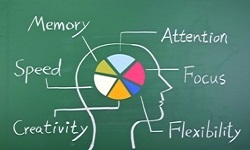
Track 2: Cognitive Development
Cognitive development includes study of neuroscience and psychology which is concerned with a child’s development in terms of perceptual skill, conceptual resources and several other aspects of a developed adult brain. With reference to the adult, psychological feature development also can be referred to as intellectual development. Cognition development depends on cognition which itself is an act of learning. Cognition phenomenon varies person by person because of factors like how a person receives, thinks process and gains an understanding of the world by their own interaction towards it.
Track 3: Cognitive Psychology
Cognitive Psychology is the scientific study of mind as an information processor. It involves the study of all the process that persists inside your brain. Cognitive psychology has additionally improved our understanding of however individuals type, store, process and recall the memories. Cognitive approach believes that internal mental behaviour is scientifically studied in experimental methods. Cognitive psychology assumes that a meditation method happens between stimulation (input) and response (output). A computer analogy is additionally proven to be very helpful just in case of cognitive psychology and the use of the computational tools to think, however, the human mind handles information is known as the computer analogy. Join us to explore more ideas!
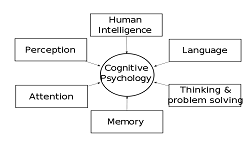
Track 4: Cognitive Dysfunctions
Loss of intellectual functions such as thinking, remembering, and reasoning occurs in cognitive dysfunction. Cognitive function is also known as brain fog. The people suffering from the same lose concentration power and face trouble with verbal recall. According to Marshall Pathogenesis, microbes are the causative agents for cognitive dysfunction. Moreover, diseases like Alzheimer’s disease are severe forms of cognitive dysfunction. Tell us more about cognitive dysfunctions!
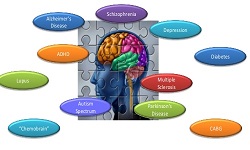
Track 5: Neuro Anatomy
Neuro anatomy is the study which deals with structural unit and organization of the nervous system. It helps to understand in a better way such that it explains about the networking of nervous cells and tissues. In vertebrates, the nervous system is segregated into the internal structure of the brain and spinal cord which is together called as the central nervous system, or CNS and the routes of the nerves that connect with the remaining parts of the body is known as the peripheral nervous system or PNS. The pairs of terms which is used most typically in anatomy are Dorsal and ventral. Dorsal part loosely refers to the top or upper side, and the ventral part refers to the bottom or lower side. Get more Details!
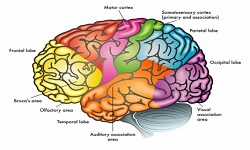
Track 6: Neuroscience and Neurobiology
Neuroscience or neurobiology is the study deals with cells of the nervous system and organization of those cells and functions inside the nervous system. It is a sub-discipline of both biology and neuroscience which includes various topics into it. In major, neurobiology is different from the neuroscience as it deals with the scientific study of the nervous system. Neurons are the specialized cells which receive and transmit electrical and chemical signals to one another. Lets discuss more about neurons!
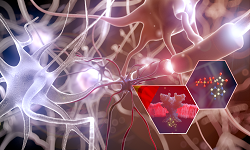
Track 7: Molecular Neurobiology
Molecular neurobiology is the sub-branch of neuroscience which deals with molecular biology that is applied to the nervous system. This topic mainly covers about mechanisms of molecular signaling in the nervous system, the effects of genetics and epigenetics on neuronal development, and the molecular basis for neuroplasticity and neurodegenerative diseases. In molecular neurobiology, the electrical and chemical signals are transmitted through the gaps between the nerve cells which is called as synapses and the transmitted chemicals are called as a neurotransmitter, which regulates the vital body functions. Join us and explain it roles!
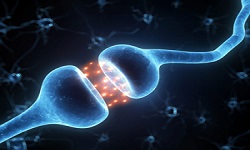
Track 8: Cellular Neurobiology
Cellular neurobiology is the branch of neuroscience which deals with functions and organization neurons at cellular levels. It details about physiological properties and morphology of single neurons or nerve cells. Various techniques are accustomed to studying the activity of cells like intracellular recording, patch-clamp, and voltage-clamp technique, pharmacological medicine, confocal imaging, biological science, two-photon laser scanning research, and Ca2+ imaging. Do you know about these techniques, Explain it here!
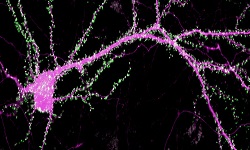
Track 9: Neurological Disorders
Any disorder related to the nervous system comes under the category of Neurological disorders. Although both brain and spinal cord are surrounded by tough membranes, by bones of the skull and spinal vertebrae and isolated by the blood-brain barrier. Involvement for neurologic disorders includes preventative measure like lifestyle changes, physical therapy, operations, medication, and Neuro rehabilitation. Neurological problem’s specific causes vary however genetic disorders, infections, inherent abnormalities, and brain injury together with deficiency disease, neural structure or nerve injury. Lets discuss more more about Neurological disorders! Submit your abstract.
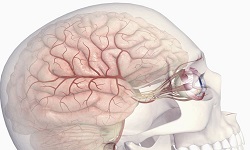
Track 10: Neuro Psychology
Neuropsychology is the field of psychological science that deals with the study of the structure and performance of the brain. It aims to understand how cognition and behaviour are influenced by brain functioning and behavioural and cognitive aspects of diagnosis and treatment of neurological disorders. In higher primates, it has also been applied to record the electrical activity from cells. Injuries, sickness and different diseases of the brain will have an effect on a person’s thanks to feeling, think, and behave, neuropsychological study here helps in evaluating and treating numerous types of disorders.

Track 11: Pediatric Neurology
Pediatric Neurology is the branch of medicine which deals with the management and diagnosis of a neurological condition in infants and children. It also includes a study of diseases and disorders related to the spinal cord, brain and nervous system that affects individuals of such a young age group. The conditions in these cases vary significantly, from disorders like migraine and cerebral palsy to a lot of advanced conditions like neurodegenerative disorders. Being younger and immature, they need more care and consultation in the medical environment. Have you faced any issues so far similar to this, let us know it from you! submit your Abstract.
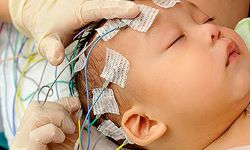
Track 12: Neuropharmacology
Neuropharmacology deals with the effects of drugs on the cellular and molecular functions of the nervous system. There are major two primary parts in neuropharmacology. They are behavioural and molecular neuropharmacology. Behavioural neuropharmacology deals with the study of how the drugs affect the behaviour of human as well as the study of however drug dependence and addiction has an effect on the human brain. Molecular neuropharmacology deals with the study of neurons and their organic compound interactions, with the general goal of developing a medication that has useful effects on neurologic function. Both of those fields are closely connected since each square measure involved with the interactions of neurotransmitters, neuropeptides, neuro hormones, neuromodulators, enzymes, second messengers, co-transporters, ion channels, and receptor proteins in the central and peripheral nervous systems. Share your ideas to the world if your research is related to it!
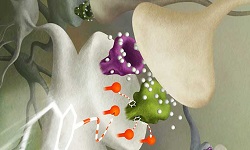
Track 13: Electrophysiology
Electrophysiology is the field of study that deals with the electrical properties and activities of biological cells and tissues. In Neuroscience, it governs the activity of signalling Neurons. These techniques help the scientist to decode the intercellular and intracellular activities of the neurons which transmits the signals. Also, it shows the activity of neurons in the neural circuits, membrane potentials, specific ion channels and physiological characteristics of neurons. Join us at Neurocognitive 2019 as a speaker/ as a delegate to discuss much about this.
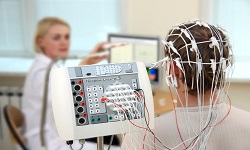
Track 14: Behavioural Psychology
Behavioural psychology is a systematic approach to understanding the behaviour of humans and other animals. This states that all the behaviours are either responses or reflexes to the respective stimuli in the environment, or are the result of an individual’s history, especially including reinforcement and punishment. This whole together with the individual’s current state and controlling stimuli decides one’s behaviour. The researchers and scientists who study behavioural psychologies are striving to understand why we behave the way we do now. Also, scientists are concerned with discovering patterns in the action and behaviours of human and animals with the hope that behavioural psychology can help us to predict how an individual will behave in a situation. If you found some of the new behaviourism, share with us by submitting abstract!
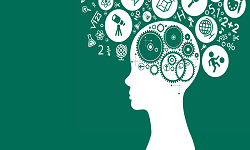
Track 15: Physiological Psychology
Physiological Psychology is a subfield of Psychology that deals with the behavioural effects of physiology. It can help in uncovering many facts and myths about human behaviour and helps us to gain knowledge about the mechanisms of the nervous system. Physiological psychology describes brain-behaviour relationships and many other topics relating the aspects behaviour of the body or activity in an organism to a body’s response. Like sleep, emotion, ingestion, senses, reproductive behaviour, learning/memory, communication, and neurologic disorders are the fields in which Physiological psychologists typically focus their attention.
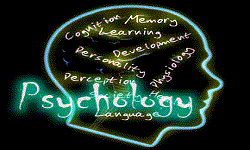
Track 16: Social Psychology
Social Psychology deals with the study of people’s behavioural like feel and acts within the context of society. In addition, it influences the psychological study involving social impact in it. The presence of others affects the individual’s outlook in such the way that even once alone society influence persists in our mind. This interaction and impact of society on one’s psychology help in studying the way these feelings, intentions, and behaviour are constructed and how these mental states influence the interactions with others. Additionally, social psychologists explain social things are the results of psychological state and human behaviour. Are you one among the social psychologist, do submit your article!
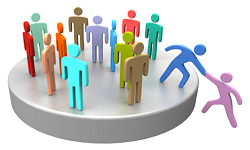
Track 17: Brain Mapping
Brain Mapping is the study of brain anatomy and performance using imaging and different non-imaging techniques. Basically, brain mapping is that the higher type of neuroimaging made by the results of processing and analysis, generally from the behavior and brain response. The technique stands nowhere individually but relies on precision in image representation, analysis, and other techniques. Brian mapping is constantly evolving in order to provide a solid understanding of brain anatomy. It helps in characteristic elements of the brain like anterior cortex and first cortical area. It also makes it easier to study about how human learns, understands and react.
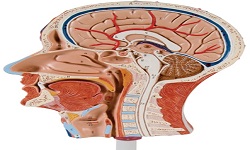
Track 18: Neurodevelopmental Disorders
The Neurodevelopmental issue is the weaknesses of the development and improvement of the cerebrum or focal sensory system. A smaller utilization of the term alludes to the confusion of cerebrum work that influences feeling, learning capacity, poise and memory and that unfurls as an individual creates and develops. Gliogenesis results in the formation of non-neuronal glial populations derived from multi potent neural stem cells. In this ability, glial cells offer a couple of functions to both the Central Nervous System (CNS) and the Peripheral Nervous System (PNS). Subsequent differentiation of neuro glial cell populations ends up in function-specialized glial lineages. Have you faced any issues related this, Do let us hear from you!
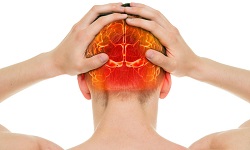
Track 19: Computational Neuroscience
Computational neuroscience is the branch of neuroscience which deals with theoretical analysis, mathematical modeling and abstractions of the brain. Research in computational neuroscience includes various areas of inquiry. Major topics in procedure neurobiology are Single nerve cell modeling; Development, nerve fiber patterning, and guidance; Sensory processing; Memory and synaptic plasticity; Behaviours of networks; psychological feature, discrimination, and learning. Recent researches are trending on the computational neuroscience field. Is your research is related to these, submit your abstract!
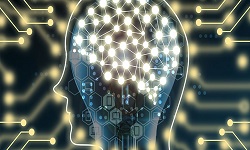
Track 20: Clinical Neuroscience
Clinical neurobiology is the scientific study of basic mechanism that causes diseases and disorders within the brain and central nervous system. It helps in seeking new ways of diagnosis for those disorders and diseases which ultimately creates the development of novel treatments. Clinical neuroscientists are specialized in their particular field to create diagnosis methods, prevention methods and the treatment of those disorders. Some of the disorders are Alzheimer's disease, amyotrophic lateral sclerosis, anxiety disorders, attention deficit hyperactivity disorder, autism, bipolar disorder, brain tumors, depression, Down syndrome, dyslexia, epilepsy, Huntington's disease, multiple sclerosis. Many people suffer due to lack of treatment, Join us to create awareness of Neurological disorders. Do submit abstract on related diseases sessions and be part with us!
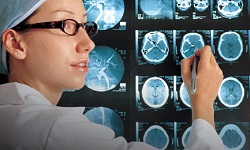
.
Importance and Scope
Different approaches including molecular, cellular, functional, developmental, psychological, structural and medical aspects of the nervous system have broadened the scope of cognitive neuroscience over time. Different aspects of neurobiology have additionally given rise to different disciplines as neuroimaging, electrophysiological studies, neuroradiography, and neuro-cardiology. Cognitive Neuroscience Congress is one among its sorts, worldwide distinguished academics in the field of neuroscience, cognition, neurology and other related disciplines (scientists, industry researchers, public health professionals, scholars) will share a platform to exchange regarding the state of the art analysis and technologies.
Why Dubai?
Dubai is the most populous and largest city in the United Arab Emirates with the gross domestic product of about $90 billion. Dubai supports the emirate’s hospitality sector as well as a large retail industry. There are around 25 universities in and around UAE that are operating within the field of neurobiology and cognitive neurology. Around 1000 neurologists, psychiatrist, electro-physiologist are working exclusively on neurological studies and cognition.
There are around 280 neurologists registered in dubai with over 9 million of a population. Having more doctors and researchers in neurology is very important as it is sure that the population will continue to increase age.
Conference Highlights
-
Cognition
-
Motor mimicry
-
Psychology
-
Neurorehabilitation
-
Neuroradiology
-
Neurological disorders
-
Cognitive disorders
-
Neurogenetics
-
Electrophysiologic retinal testing
-
Nerocardiology
-
Cognitive development
-
Intracranial diseases
-
Geriatrics
-
Intracardiac electrogram
-
Cognitive health
-
Diagnosis of neural and neurocognitive disorders
Why attend?
Cognitive Neuroscience Congress is a unique forum to bring together worldwide distinguished academics in the field of neuroscience and neurology, Brain researchers, public health professionals, scientists, academic scientists, industry researchers, scholars to exchange regarding state of the art analysis and technologies.
The aim of this conference is to stimulate new ideas for brand new approaches towards the understanding and treatment that may be useful across the spectrum of neurocognition.
Target Audience
Directors, Neurologist, Neurosurgeons, Psychiatrist, Psychologist, Professors and Students from Academia in the research of Neuroscience. Neurophysiologists, Neurologists, Neurosurgeons, Neuroradiologists, Cardiology, Electrophysiologists, Ophthalmologists, Psychiatrists, Physiatrists, Pharmacists, Research scientists, Neurology Organizations and societies.
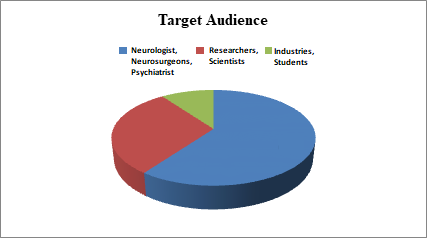
A Unique Opportunity for Advertisers and Sponsors at this International event
Universities associated with Neuroscience in Globe are:
- University of Oxford
- Harvard University
- University Of Cambridge
- Stanford University
- University College London
- Princeton University
- University of California
- Yale University
- Cornell University
- Indiana University
- Johns Hopkins University
- The University of California at Irvine
- University of California at San Diego
- University of Amsterdam
- University of North Carolina
- Alfaisal University
- Mansoura University
- King Abdulaziz University
- Assiut University
- University of Edinburgh
- University of Manchester
- Cardiff University
- University of Vermont
- University of Amsterdam
- Ghent University
- Maastricht University
Universities associated with Neuroscience in the Middle East are:
- King Saud University
- United Arab Emirates University
- King Abdulaziz University
- Ain Shams University
- American University of Beirut
- Cairo University
- Mansoura University
- Assiut University
Universities associated with Neuroscience in UAE are:
- Gulf Medical University
- RAK Medical & Health Sciences University
- Mohammed Bin Rashid University of Medicine
- College of Medicine University of Sharjah
- NYU Abu Dhabi
- Zayed Universities
- Kuwait University
- New York University Abu Dhabi
- University of Sharjah
- Abu Dhabi University
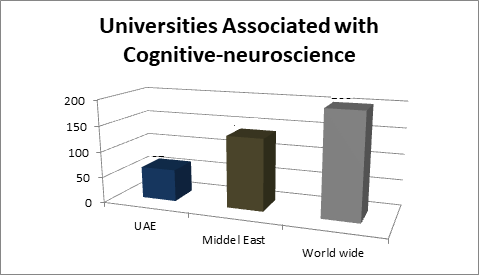
Major Neuroscience Hospital around the Globe:
- Govt. Psychiatry Hospital
- Ram Psychiatry Hospital
- Helwan Psychiatry Hospital
- Clinique Axium
- Royal Edinburgh Hospital
- St. Patrick's University Hospital
- Metro Psych Facility
- DelaCerna Hospital
- Aged Psychiatry Services
- The Ashburn Clinic
- Peace Health Ketchikan Medical Center
- Royal Alexandra Hospital Psychiatry
- Amager Hospital
- World Brain Center Hospital
Major Neuroscience Hospital around the Middle East:
- Dr. Gebrane Psychiatry
- The Behman Hospital
- Heliopolis Psychiatric Hospital (Al-Matar)
- Serene Psychiatry Hospital
- Herzog Medical Center
- American Center for Psychiatry & Neurology - Sharjah
- American Center for Psychiatry and Neurology
- Near East University Hospital
Major Neuroscience Hospital around the UAE:
- Emirates Hospital
- Neuro Spinal Hospital
- Medicare Hospital
- Medicare Orthopaedics & Spine Hospital
- Wooridul Spine Center
- American Center for Psychiatry and Neurology
- Al Amal Hospital
- American Hospital Dubai
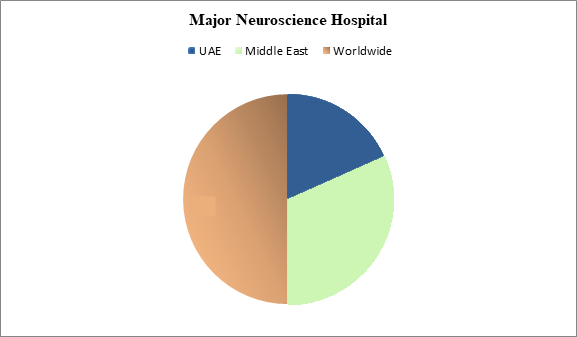
Related Societies
USA:
American Board of Psychiatry and Neurology (ABPN), American Society of Neuroimaging, Medical and health professional associations in Chicago, American Academy of Neurology (AAN), American Society of Neuroimaging, American Neurological Association (ANA), American Society of Neuroimaging, American Society of Neuroimaging, American Association of Neurological Surgeons, American Spinal Injury Association, National Institute of Neurological Disorders and Stroke, American Epilepsy Society, , Child Neurology Society, American Academy of Family Physicians, American Association for Cancer Research, American dental organizations, American Psychiatric Association, The American Clinical Neurophysiology Society, American Anthropometric Society, American Autonomic Society, American College of Neuropsychopharmacology, American Neuropsychiatric Association, American Society for Neurochemistry, Institute for Music and Neurologic Function, Davis Phinney Foundation, Dravet Syndrome Foundation, Peripheral Nerve Society, Society of Neuroscience, Society of Women's health Research, United Council for Neurological Subspecialties, National Neurotrauma Society, National Society of Genetic Counselers, International Brain Injury Association, Congress of Neurological Surgeons, International Psychogeriatric Association.
Europe:
Association of British Neurologists, European Federation of Neurological Societies, Brain Research Trust, European Parkinson's disease Association, Turkish Neurological Society, Neurological Society of Serbia, Brain Research Trust, European Academy of Neurology, European Brain Council, British Neuropathological Society, Swiss Society of Neurology, Netherlands Society of Neurology, Scientific Society of Neurologists of the Ukraine, Moldovan Scientific Society of Neurologists, Association of Neurologists in Bosnia and Herzegovina, Bulgarian Society of Neurology, Croatian Neurological Society, Carlo Besta Neurological Institute, Czech Neurological Society, Geogrian Society of Neurologists, German Society of Neurology, Hellenic Neurological Society, Hungarian Society of Neurology and Psychiatry, Icelandic Neurological Society, Irish Institute of Clinical Neuroscience, Israel Neurological Association, Italian Society of Neurology, Portuguese Society of Neurology (Sociedade Portuguesa de Neurologia), Romanian Society of Neurology, All-Russian Society of Neurologists, Neurological Society of Serbia.
Asia Pacific and Middle East:
Iranian Neurological Association, Iraq Neurological Society, Qatar Neuroscience Club, Indonesian Neurological Association, Neurological Society of India, Japanese Society of Neurology, Mongolian Association of Neurologist, The Jordan Neurological Society, Hong Kong Neurological Society, Indian Academy of Neurology, Kuwait Neurological Society, CHIMES Society, Danish Headache Center, Israel Neurological Association, League of Neurologists of Kazakhstan, Korean Neurological Association, Philippian Neurological Society, Saudi Neurological Society, National Association of Neurologists of the Kyrgyz Republic, Malaysia Society of Neuroscience, Myanmar Society of Neurology, Oman Neurology Society, Pakistan Society of Neurology, Palestinian Neurological Society, European Federation of Neurological Societies, European Parkinson's diesease association, European Neurological Society, International Neuromodulation Society, International Stroke Society, Italian Neurological Society, Southern Clinical Neurological Society, World Federation of Neurology.
Conference Highlights
- Cognitive Health
- Cognitive Development
- Cognitive Psychology
- Cognitive Dysfunctions
- Neuro Anatomy
- Neuroscience and Neurobiology
- Molecular Neurobiology
- Neurological Disorders
- Cellular Neurobiology
- Neuro Psychology
- Pediatric Neurology
- Neuropharmacology
- Electrophysiology
- Behavioural Psychology
- Physiological Psychology
- Social Psychology
- Brain Mapping
- Neurodevelopmental Disorders
- Computational Neuroscience
- Clinical Neuroscience
To share your views and research, please click here to register for the Conference.
To Collaborate Scientific Professionals around the World
| Conference Date | December 09-10, 2019 | ||
| Sponsors & Exhibitors |
|
||
| Speaker Opportunity Closed | |||
| Poster Opportunity Closed | Click Here to View | ||
Useful Links
Special Issues
All accepted abstracts will be published in respective Our International Journals.
- Journal of Neurology & Neurophysiology
- Journal of Neurology and Neuroscience
- Journal of Neurological Disorders
Abstracts will be provided with Digital Object Identifier by



